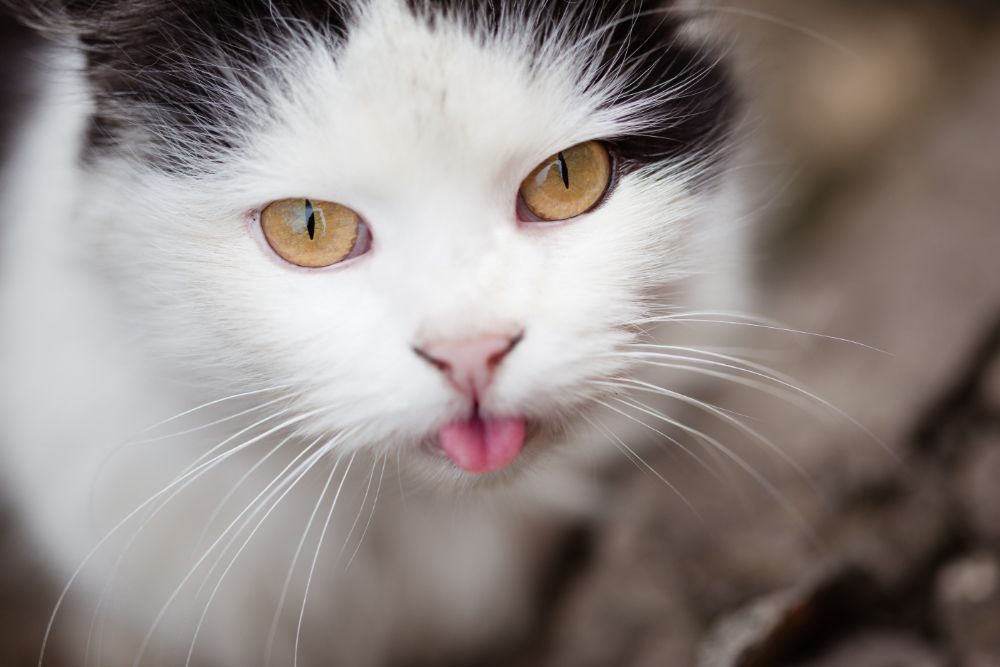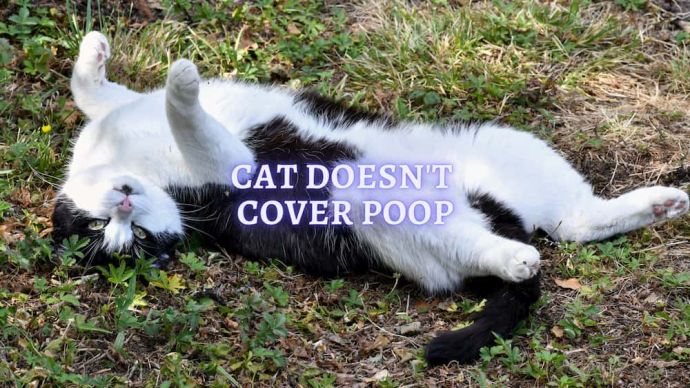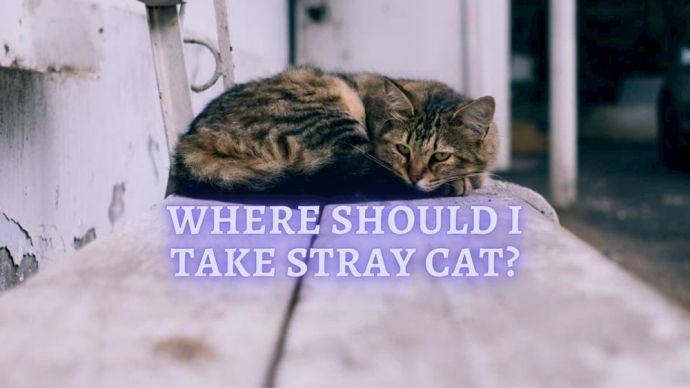Why is my Cat Yowling at Night: Causes and Solutions
Written by:
Author: Vicki Smirnova
Vicki Smirnova is a professional writer and editor who adores animals and helps readers get along well with their pets. She has been working in digital media for more than 5 years and has great experience writing content about lifestyle, including pets. Vicki specializes in dog health and nutrition, cat feeding, dog training. She is an aquarium lover and is passionate to write about fish care at home. Also, Vicki headed several websites and worked as a news editor.
View all 245 articlesLearn about our editorial process and veterinary review board.
Reviewed by:
Veterinary review
by Dr. Linda Simon
Dr. Linda Simon is a veterinary surgeon working with seven years of experience. She is a fellow of the British Veterinary Association and specializing in animal medicine. Also, she has been the Woman magazine resident vet for the past two years and writes a regular column for them, focusing on pets and their health.
View all 30 articlesLearn about our veterinary review board
Viewed: 589
Updated on: 01/21/2021
Activity for a cat at night is an absolutely natural behavior. Cats are predators by nature, and they can see well in the dark and can be active at night. But what if the cat meows and doesn’t let you sleep at night? Is it possible to conquer nature and adjust the cat’s waking rhythm to suit yourself?
To eliminate night screams, try to make sure that the cat has played enough for the whole day, and spent all its energy. This is especially true if you are at work until the evening, and the cat is bored alone. Therefore, she prefers to sleep all day, and at night, when the owner is home, frolics. If this does not help, then you can contact a veterinarian, there may be other causes of night howls.
Causes of Night Yowling
1. Hormones
If your pet is not sterilized, most likely, the reason for the night howling is a hormonal surge. Often cats begin to scream in the springtime of the year but can be heard during any season. They are influenced by instincts, hear the call of relatives other cats from the window, and smell the air. With such a romantic mood, cats cannot sit still, so the pet is worried and screams, demanding that the owner let him go search of love.
Cats that have already fulfilled their sexual instincts scream even more, so don’t be fooled into thinking to mate your cat will resolve the issue. Therefore, if the owner does not intend to breed cats, it is more reasonable to sterilize the pet.
There are situations when even sterilized pets howl at night for a short time after the procedure. This happens because after sterilization, the hormonal background is not immediately leveled, and behavior is normalized gradually.
While most owners are aware that intact females in season will yowl when searching for a male, not everyone realizes that uncastrated males will meow just as loudly in response!
2. Boredom
Another reason for night howls may be the usual boredom. Cats are crepuscular animals, meaning they are most active at dawn and dusk. When the whole house is asleep, they have nowhere to vent their energy, no one to run after, no one to “talk” and play with, so they show their longing by yowling.
3. The cat demands attention
If the cat does not let you sleep at night, deliberately wakes you up, meows, drops objects, most likely, it just does not have enough attention, and it tries to establish at least some contact with you. Some pets are real manipulators and egoists. Perhaps your cat just wanted you to pay attention to it in the middle of the night. The cat wants the owner to wake up and play with them, and nothing will stop the pet from reaching the goal.
It is essential not to react to provocations: if the cat does not let you sleep at night and requires attention, and you are sure that it does this not because of illness, stress or heat, but to get your reaction, ignore its antics and do not give in to manipulation. If you ignore the cat’s demands for a few days, and then suddenly react violently to a fallen object, this will only strengthen the undesirable behavior. Similarly, if it harasses you for food and you give in and feed them, they are sure to ask again!
4. Young age of the pet
Small kittens meow at night because they miss their mother, seek attention and protection because they feel stress alone. As they get older, this behavior passes, and once fully weaned, most kittens will stop. When rehomed, most little ones miss their sibling and mother and will meow for the first few nights. Offer them comfort and remain calm; this will pass.
5. The cat wants to go for a walk
Sometimes the owners themselves provoke undesirable behavior in their pets. For example, once you decided to take a cat for a walk in the yard, but you are not going to walk it regularly, and the cat liked it, and now it is annoying to sit in the apartment, so it requires a walk with the help of meowing.
READ MORE: Best Cat Toys Review
6. Diseases
Unfortunately, the cause of catcalls can be serious diseases. A cat may feel unwell, restless, or in pain because of an illness, and therefore meows loudly. Usually, the condition is indicated by other symptoms. In any case, it is better to take the cat to the vet for an examination. If a cat is vocalizing a lot more than before, one of the most common causes would be a hormonal disorder called hyperthyroidism. Affected cats may also lose weight, become ravenously hungry, and develop vomiting and diarrhea. Another consideration in older felines would be feline dementia, which can cause incessant meowing, staring into space and pacing.
READ MORE: How to tell if your Cat is Sick
How to get rid of Cat Night Meows?
1. Consult a veterinarian
If your pet was always calm and slept soundly at night, but suddenly started howling at night, we need to ask why? Before you begin parenting, talk to a veterinarian, who will help you determine the cause of this behavior, and tell you what measures to take.
2. Sterilization
If the cause of night howls are hormones, you can sterilize your pet, of course, if you are not going to breed kittens. After this procedure, your pet’s behavior will improve, as the cat will no longer suffer from unsatisfied instincts.
Remember that the cat may continue to meow at night for the first time after sterilization, but gradually the hormonal background will level out, and this habit will disappear.
The ideal age for sterilization is from about 4 or 5 months of age. Late sterilization may not solve behavior problems since the habits of adult cats are firmly fixed.
3. Play with your cat
Cats can scream out of boredom. In this situation, you will be helped by various toys for cats; the better, the better. Your goal is to provide the cat with enjoyable leisure time so that it is busy with something while you sleep. Cats especially like toys that allow them to express their natural behavior such as lasers and wind up mice that they can chase. For many, catnip toys are a real favorite. Keep them interested in mealtimes and tickle their brains by feeding them from food puzzles rather than a simple bowl.
READ MORE: How to raise a healthy Kitten
4. Active classes in the afternoon and evening
Another way to get rid of night howls is to make the cat tired during the day and especially before going to bed. Make sure that the pet runs and jumps, take her out for a walk. The more the cat will get tired of the day – the harder it will be to sleep at night.
5. A hearty meal
A luxurious late dinner is an excellent way to ensure that you and your pet get a sweet sleep. You can slightly reduce the portions during the day and give your pet a weighty piece. A tired and full pet can sleep all night.
6. Prohibited measures
In no case should you reprimand your pet for such behavior? Telling them off will not help at all in the fight against night screams. Pet will hide behind the sofa and scream from there or continue to howl as soon as you get back into bed.
The main thing is to understand that the cat does not scream to spite you; for night screams, the pet must have reasons, and it is impossible to eliminate them with punishment.
Punishment will only worsen the relationship between you.
 Cat Care Why Does My Cat Attack My Legs? 10 Reasons Why and What To Do About It (Vet-Approved Advice)
Cat Care Why Does My Cat Attack My Legs? 10 Reasons Why and What To Do About It (Vet-Approved Advice) - 45568
- 21
 Cat Veterinary Tips Cat Stomach Gurgling: Vet Advice on Why is Your Cat Stomach Gurgling?
Cat Veterinary Tips Cat Stomach Gurgling: Vet Advice on Why is Your Cat Stomach Gurgling? - 35343
- 4
 Cat Veterinary Tips My Cat Lost its Voice: Can Cats get Laryngitis? (Vet Advice)
Cat Veterinary Tips My Cat Lost its Voice: Can Cats get Laryngitis? (Vet Advice) - 23247
- 13


























